Prof. David Palmer Calls for Integration of Social Dimensions into Asia’s Climate Transition at CASI Sustainability Forum
The CASI Sustainability Forum, themed “Building Capacity for a Transition Finance Ecosystem in Asia,” successfully concluded on the final day of Hong Kong Green Week on September 12. Professor David Palmer delivered a keynote speech at the forum titled “Social Considerations & Risks in a Just Transition,” urging stakeholders in sustainable finance to systematically integrate social equity considerations into Asia’s transition toward a low-carbon economy.
9/29/20253 min read
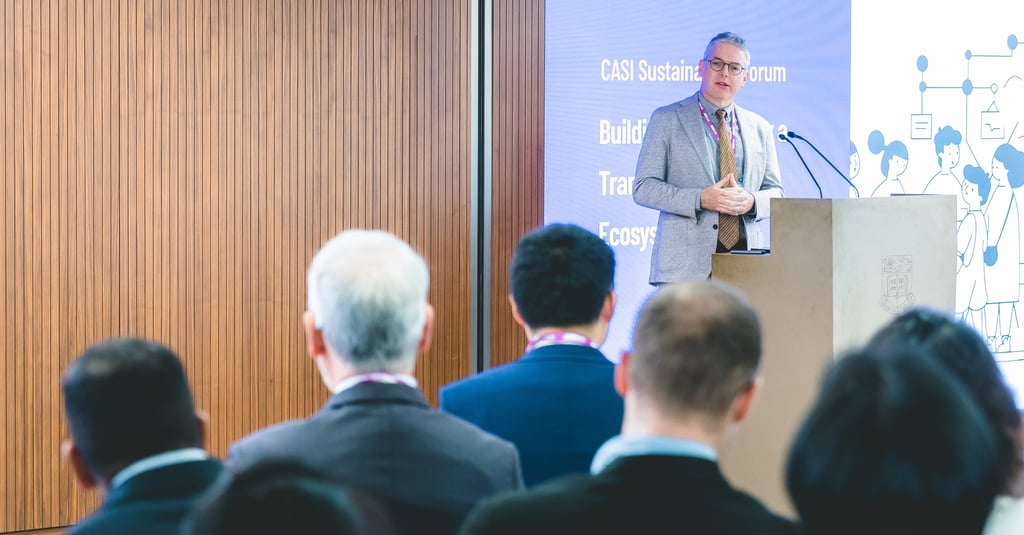

The CASI Sustainability Forum, themed “Building Capacity for a Transition Finance Ecosystem in Asia,” successfully concluded on the final day of Hong Kong Green Week on September 12, reinforcing its role as a key regional platform for advancing sustainable finance collaboration. Professor David Palmer from The University of Hong Kong delivered a keynote speech titled “Social Considerations & Risks in a Just Transition,” urging stakeholders in sustainable finance to systematically integrate social equity considerations into Asia’s transition toward a low-carbon economy.
The hybrid forum attracted over 150 in-person attendees and close to 300 virtual participants spanning 40 jurisdictions, underscoring growing cross-border engagement on climate finance issues. Discussions centered on three core pillars essential to a credible transition finance framework: robust transition planning, enhanced disclosure standards, and innovative financial instruments.
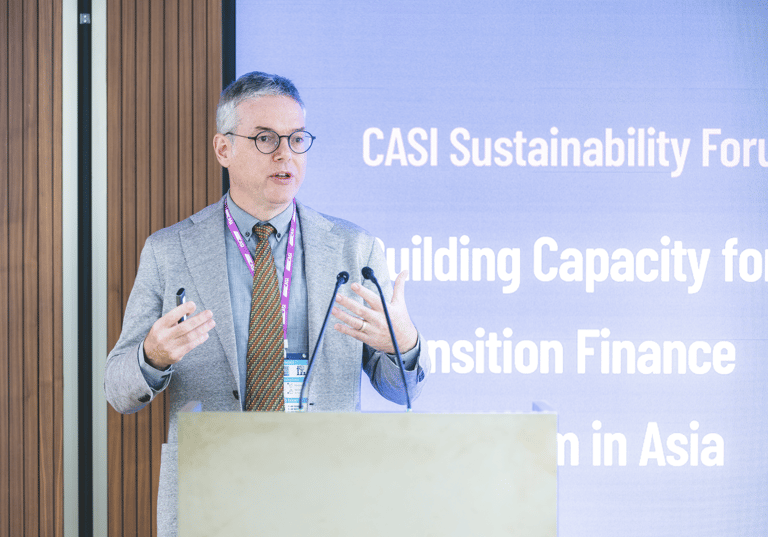

In his address, Prof. Palmer drew on extensive anthropological fieldwork conducted across Asia to underscore a critical tension in the region’s decarbonization pathway. While green infrastructure initiatives—such as mines supplying critical minerals for batteries and renewable energy dams—are vital to global climate goals, they frequently entail significant adverse impacts on local ecologies and communities, including displacement, livelihood disruption, and cultural erosion.
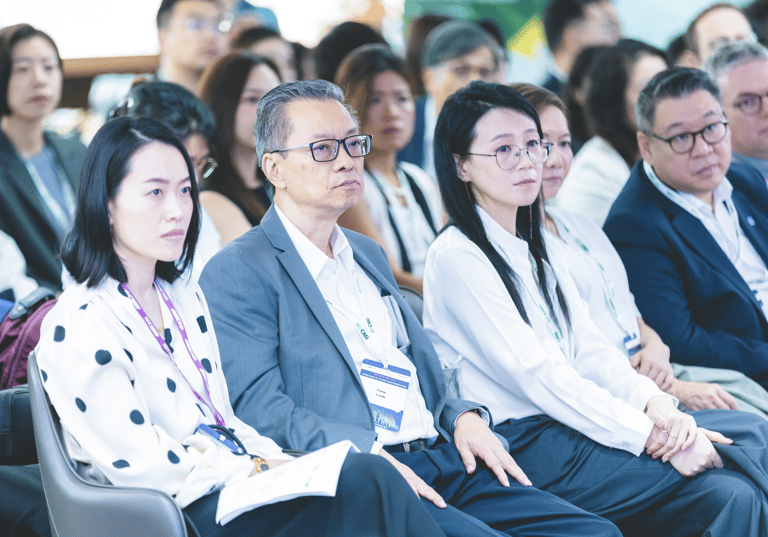

He cautioned that an overemphasis on technological and market-based solutions, without due attention to socioeconomic equity, risks exacerbating inequality, triggering social unrest, and derailing transition efforts. Prof. Palmer cited recent farmer protests in the Netherlands and community opposition to lithium mining in Chile as illustrative cases where top-down transition approaches have generated backlash.
Emphasizing the concept of a “just transition,” Prof. Palmer advocated for institutionalizing multi-stakeholder engagement mechanisms early in project planning and finance decision-making. He highlighted promising examples such as the Oyu Tolgoi mining project in Mongolia and Spain’s managed phase-out of coal, where inclusive dialogue with local communities, labor unions, and Indigenous groups led to more equitable outcomes and higher public acceptance.
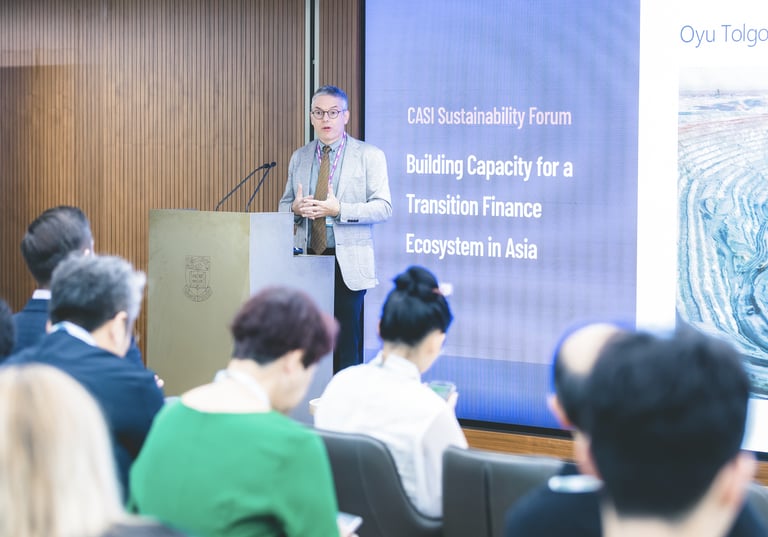

To align financial flows with social resilience, Prof. Palmer called on investors, regulators, and developers to embed principles such as transparent stakeholder consultation, social due diligence, and local benefit-sharing into transition finance frameworks. He further recommended that capacity-building programs for finance professionals incorporate social impact assessment tools alongside environmental metrics. He concluded by framing the climate transition as a fundamentally human-centric endeavor, stressing that its success must be measured not only in terms of carbon and capital but by its ability to foster an inclusive economy and deliver shared prosperity, especially for the most vulnerable.
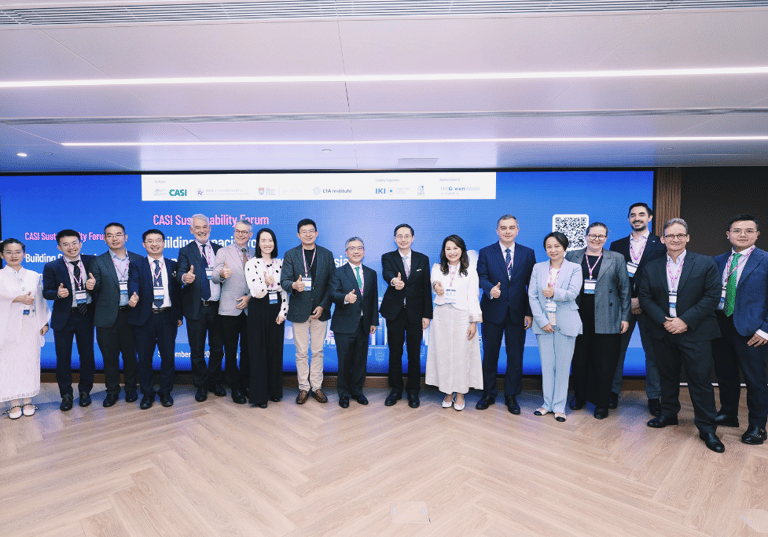

The Forum was co-organized by the Capacity-building Alliance of Sustainable Investment (CASI), the Hong Kong Monetary Authority’s Infrastructure Financing Facilitation Office (HKMA-IFFO), the HKU Jockey Club Enterprise Sustainability Global Research Institute, and CFA Institute, with support from a network of industry and academic partners.
Report by CASI: https://www.casi.net/events/173
David A. Palmer
SITE MAP
Bridging research and community through spiritual growth, dialogue, and social engagement.
Home
Copyright © 2025 David A. Palmer. All Rights Reserved.
CONTACT
About
Publications
Resources
Team & Students
